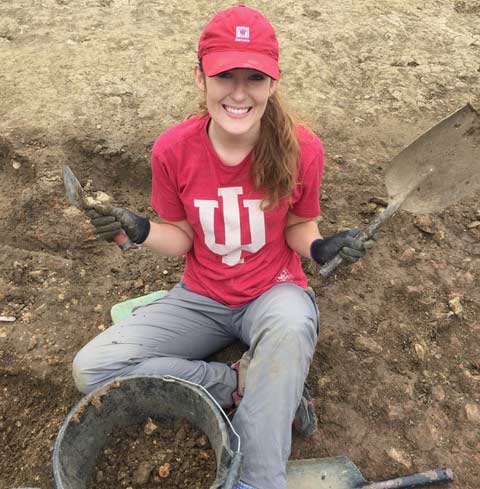Ever since I was young, I have been fascinated by ancient history and archaeology. During my undergraduate years at Indiana University, I majored in Classical Civilization (with an emphasis on Art and Archaeology) and Anthropology. I thrived in classes like The Art and Archaeology of the Aegean, Topography and Monuments of Athens, and The Body in Classical Art. These courses, in combination with my bioanthropology and material archaeology courses in the Anthropology department, gave me the confidence to apply to an archaeology field school in Lincoln, England – to which I returned for three consecutive summers as a site supervisor! I fell in love with the process of excavation and discovery – getting your hands dirty, getting deep into the mud and out of the classroom quite literally transports you through layers of time through the stratigraphy.
Student spotlight: Ellie Roach

 The College of Arts
The College of Arts